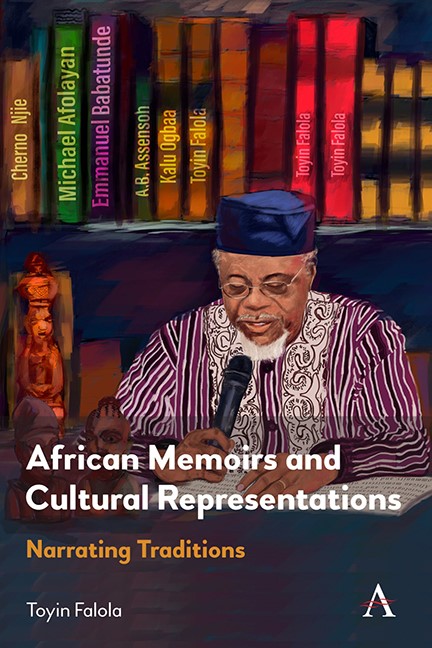Book contents
- Frontmatter
- Contents
- List of Figures
- Dedication
- Acknowledgments
- Preface
- Chapter One Mirror Effect: Narrating the Self through Traditions and Cultures
- Chapter Two The Universal and the Particular in African Memoirs
- Chapter Three The Portraiture of Womanhood in Emmanuel Babatunde’s An African Journey through Celibate Priesthood to Married Life
- Chapter Four Politics, Philosophical Representation, and Culture in Cherno Njie’s Sweat Is Invisible in the Rain
- Chapter Five The Yoruba Worldview, Meanings, and Ideals of Life in Michael Afolayan’s Fate of Our Mothers
- Chapter Six The Indelibility of Igbo Tradition (Home) in Kalu Ogbaa’s Carrying my Father’s Torch
- Chapter Seven Experiences, Reflections, and Refractions on the Cusp in A. B. Assensoh’s A Matter of Sharing
- Chapter Eight Toward a Spatial and Identity Synthesis: Regional Peculiarities in African Memoirs
- Bibliography
- Index
Chapter Eight - Toward a Spatial and Identity Synthesis: Regional Peculiarities in African Memoirs
Published online by Cambridge University Press: 14 November 2023
- Frontmatter
- Contents
- List of Figures
- Dedication
- Acknowledgments
- Preface
- Chapter One Mirror Effect: Narrating the Self through Traditions and Cultures
- Chapter Two The Universal and the Particular in African Memoirs
- Chapter Three The Portraiture of Womanhood in Emmanuel Babatunde’s An African Journey through Celibate Priesthood to Married Life
- Chapter Four Politics, Philosophical Representation, and Culture in Cherno Njie’s Sweat Is Invisible in the Rain
- Chapter Five The Yoruba Worldview, Meanings, and Ideals of Life in Michael Afolayan’s Fate of Our Mothers
- Chapter Six The Indelibility of Igbo Tradition (Home) in Kalu Ogbaa’s Carrying my Father’s Torch
- Chapter Seven Experiences, Reflections, and Refractions on the Cusp in A. B. Assensoh’s A Matter of Sharing
- Chapter Eight Toward a Spatial and Identity Synthesis: Regional Peculiarities in African Memoirs
- Bibliography
- Index
Summary
Introduction
I deliberately chose to end this study with an overview of the nuances that dictate the texts produced by African memoirs, especially from other regions of the continent not given attention in the preceding chapters. I opened with a broader Africa-wide orientation of the memoirs, and I want to close with some peculiarities that I have framed as “regional.” As a mode of writing, the memoir—which can be categorized under the (auto)biography genre—has received much attention in recent times. It has been classified as a form of fiction with dashes of believability and a semblance of truth. Critics like James Olney and Paul John Eakin have noted the autobiography/ biography bifurcation and the interpenetration of the two forms. Autobiographers become biographers when they focus on parents, siblings, and significant other persons in their lives.
Conversely, one who injects personal details into a narrative of another life ends up producing an autobiography. To adapt James Olney’s idea of the open-endedness of autobiography, an autobiography half emerges in the act of living and writing about others. People can write their lives’ stories obliquely by writing the life of another, a status Eakin calls crypto-autobiography. Commenting on her own life and work, Bretell says, “as a book by a daughter about a mother who was a writer, this text involves a blending of voice, by extension, a blurring of genre … it is both a biography and an autobiography, not only because the lives of a mother and a daughter are inextricably intertwined.” This is natural because people do not live in isolation. The lives of people in society interpenetrate, and people define themselves in terms of the mutual inter-influencing of their lives and those of the people around them. Thus, a life is given significance by the social milieu, the culture in which it is found.
As an important mode of the narrative genre, the functions of a memoir are numerous. Even though it is a writing about the life of a singular individual, it can be viewed to perform the role of preservation, documentation, and, most importantly, offering representations of behavioral patterns to be followed and imbibed by readers.
- Type
- Chapter
- Information
- African Memoirs and Cultural RepresentationsNarrating Traditions, pp. 177 - 194Publisher: Anthem PressPrint publication year: 2023



